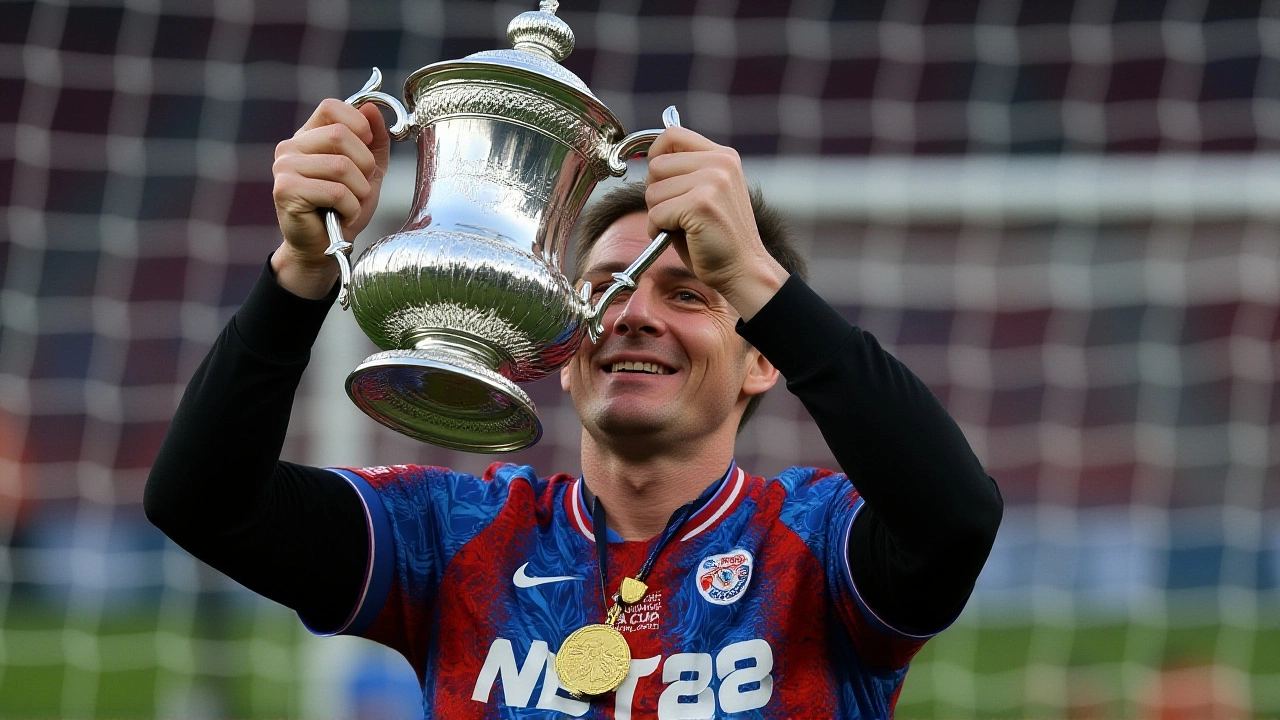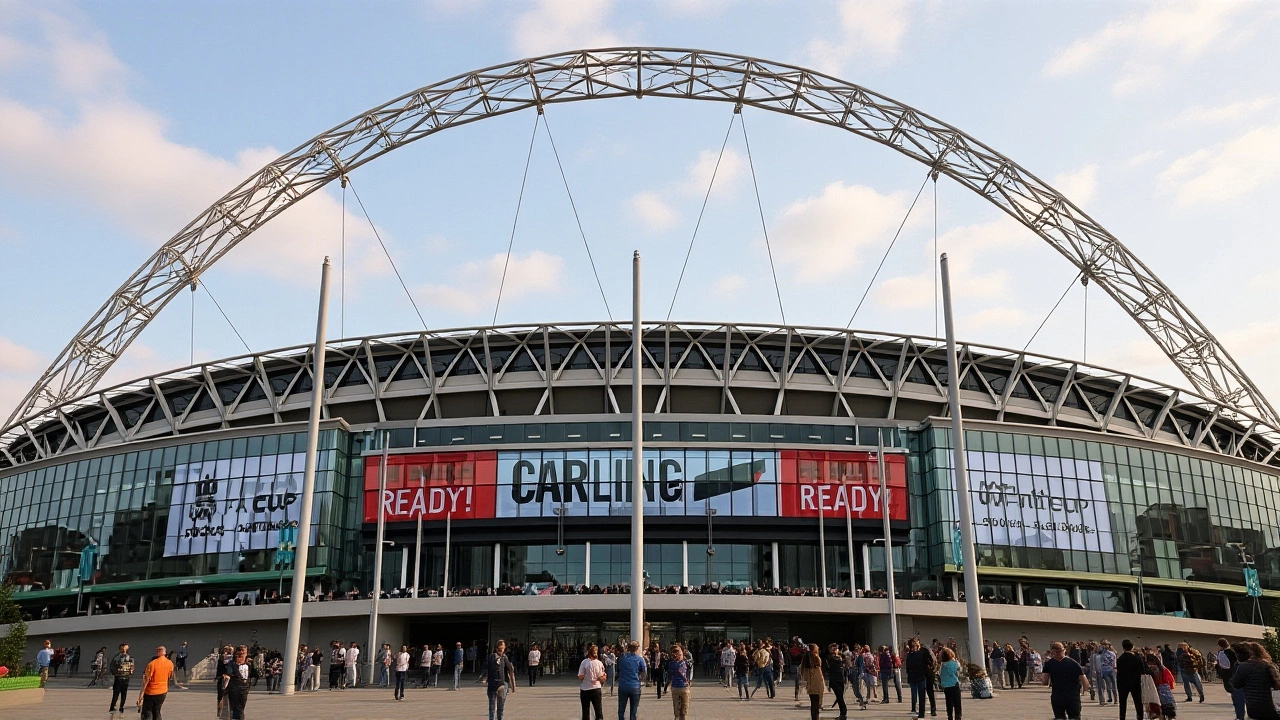On October 29, 2025, The Football Association confirmed a multi-year extension of its beer partnership with Carling, keeping the iconic UK lager as the official beer of both the Emirates FA Cup and the Adobe Women’s FA Cup through at least 2027. The announcement, made from Wembley Stadium in London, came just days after the Women’s FA Cup first round wrapped up and hours before the men’s competition kicks off — a timing no coincidence. This isn’t just a sponsorship renewal. It’s a cultural reset for football fandom, blending nostalgia, retail strategy, and fan experience in a way few beer brands have managed since the Premier League’s early days.
From Budweiser to Backlash: The Carling Comeback
Carling didn’t just step into the void left by Budweiser in 2023 — it redefined it. The brand’s three-year initial deal, which replaced the American giant, was always going to be scrutinized. But by late 2024, Carling had already outperformed expectations. Its podcast, Could it be Magic, hosted by former England internationals Joe Cole and Ashley Cole, hit 33 million listens by October 2025. That’s more than the combined audience of the FA’s own digital channels. The show doesn’t just talk tactics — it’s raw, funny, and deeply British. Listeners hear Cole reminisce about scoring at Wembley while sipping a Carling, and Ashley admits he once drank one after a 4-0 loss. It’s not marketing. It’s storytelling.
Behind the scenes, Molson Coors Beverage Company — the Canadian-American brewer with UK operations in Tadcaster, North Yorkshire — leaned hard into grassroots engagement. More than 100 million Carling packs carried exclusive codes for tickets to the FA Cup finals. Supermarkets became mini-stadiums. Fans queued not just for beer, but for a chance to touch the actual trophies. The FA’s own figures show that in the first year alone, over 2 million fans visited supermarkets specifically to see the FA Cup and Women’s FA Cup trophies on display.
The Retro Can Hunt: A Nostalgia Gamble
The new phase? A bold, almost punk move: hiding 1,000 limited-edition retro cans in packs sold at Tesco PLC, Sainsbury’s PLC, and Asda Stores Limited. These aren’t just throwback designs — they’re exact replicas of the 1990s Carling cans that once adorned pub fridges across England. Each one comes with a QR code that unlocks a VIP experience: meet-and-greets with legends like Dion Dublin, Stuart Pearce, and Ellen White, plus tickets to FA Cup semi-finals. The hunt is designed to spark social media chaos — and it already has. TikTok clips of people ripping open crates in their kitchens have gone viral. One man in Manchester found his can while doing laundry. He posted it with the caption: "This is the first time I’ve cried over a lager since my dad died."
It’s clever. It’s risky. And it’s working. Retailers report a 17% spike in Carling sales in the week after the announcement — the biggest single-week jump since the brand’s 2016 return to the Premier League.
Why This Matters Beyond the Pint
This deal isn’t just about beer. It’s about who owns football’s emotional landscape. Emirates Airline and Adobe hold the title sponsorships — but Carling owns the atmosphere. While Emirates’ branding is sleek and global, Carling feels local. It’s the guy in the pub who knows your name. It’s the mum who buys a six-pack because her son’s team made it to the third round. It’s the women’s team players who see their names on cans in Sainsbury’s — something no other beer brand has done at this scale.
And the timing? Perfect. The Women’s FA Cup sponsorship with Adobe Inc. ends in June 2026. While the FA is expected to renew with Adobe, Carling’s extension ensures that even if the title sponsor changes, the beer — and the fan experience — stays the same. That kind of continuity is rare in modern sports partnerships.

The Legacy: Carling’s Football DNA
Let’s not forget: Carling didn’t just sponsor football — it helped define it. From 1993 to 2001, it was the first-ever title sponsor of the Premier League. The phrase "Carling Premiership" was as common as "Premier League" is today. Then came the League Cup (1993–2012), then a brief return as Premier League’s official beer partner from 2016 to 2019. Each time, it faded — only to return stronger. Now, it’s not just back. It’s central.
The FA’s decision to extend until 2027 — covering finals at Wembley Stadium in both 2026 and 2027 — is a quiet statement: football’s soul isn’t in the boardrooms of Dubai or Silicon Valley. It’s in the pub. On the high street. In the hands of a kid who just found a retro can and now believes in magic again.
Frequently Asked Questions
How does the Carling partnership affect women’s football visibility?
Carling’s involvement has significantly boosted the profile of the Adobe Women’s FA Cup by integrating it into nationwide retail campaigns and media activations alongside the men’s competition. For the first time, women’s FA Cup trophies have been displayed in supermarkets alongside men’s, and female legends like Ellen White appear in promotions equally with male icons. This parity in exposure — not just in sponsorship, but in physical presence — is helping normalize women’s football in everyday spaces, not just stadiums.
Why did The FA choose Carling over other beer brands?
Carling offered more than money — it offered cultural resonance. Unlike global brands that treat football as a billboard, Carling’s team built authentic fan experiences: podcasts with local legends, trophy tours in supermarkets, and pub events tied to real match days. The 33 million podcast listens and 100 million branded packs sold proved deep engagement. The FA values long-term emotional connection over short-term revenue spikes — and Carling delivered both.
What happens to the partnership after 2027?
The FA’s extension is "until at least 2027," leaving room for renewal. Carling has shown it can adapt — from Premier League sponsor to grassroots innovator — and its current strategy aligns with the FA’s push for community-focused growth. If the retro can campaign continues to drive sales and social buzz, a further extension is likely. But if fan fatigue sets in, the FA may pivot to a newer, digital-first brand — though none have yet matched Carling’s emotional pull.
How does this compare to previous beer sponsorships in English football?
Budweiser’s 2020–2023 deal was transactional — logos on pitchside boards, little fan interaction. Carling’s 2023–2027 plan is experiential: podcasts, hidden cans, trophy tours, and player meet-ups. It’s the difference between advertising and belonging. Even Carling’s 1990s Premier League sponsorship didn’t reach this level of grassroots intimacy. Today’s fans don’t want to see a logo — they want to feel part of the story. Carling gets that.
Are there any concerns about alcohol sponsorship in football?
Yes — public health advocates have raised concerns, especially around youth exposure. But Carling’s campaign avoids targeting minors: the retro can hunt requires ID for prize redemption, and promotions are restricted to over-18s in pubs and supermarkets. The FA also emphasizes responsible drinking messaging in all materials. Still, the debate continues, particularly as the FA moves toward broader health initiatives. This partnership may be the last of its kind unless the industry shifts to non-alcoholic alternatives.
What’s next for Carling’s football marketing?
Carling is rumored to be developing a mobile app that lets fans scan cans to unlock exclusive content — behind-the-scenes footage from FA Cup matches, player interviews, and even virtual pub quizzes with former stars. They’re also testing a limited-edition "Finals Night" can for the 2026 final, with proceeds going to grassroots youth football programs. If successful, this could become a new model for sports sponsorships: profit with purpose.
